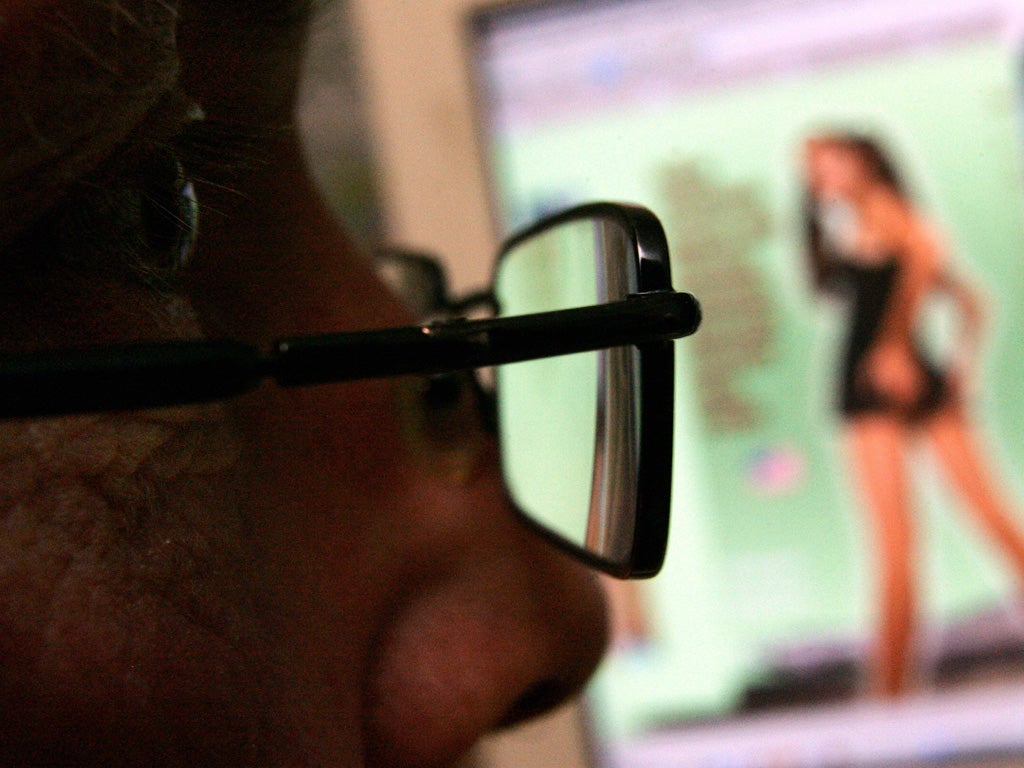Porn on the Brain: Why is there so little scientific research about porn?
For a subject of acute public concern, the dearth of evidence on its effects is startling

Online pornography has appeared in the 2013 news agenda like an invasive internet popup. That child killers Mark Bridger and Stuart Hazell both accessed pornography was regularly mentioned during their trials, while David Cameron has called on Internet Service Providers to have default porn filters in place by the end of 2014. The media has been awash with shrill cries to purge the web of smut, and liberal agonising over how to balance people’s freedom to watch what they want with the potentially detrimental effects of unprecedented access to explicit imagery.
There does appear to be cause for concern about the effect on young people, as highlighted by a report by forensic psychologists at Middlesex University which brought into focus the extent to which porn permeates their lives. But with public fear around such a highly moralised subject there is a real danger of the debate being dominated by the loudest voices with the evidence either being ignored or worse misrepresented to bolster arguments by both sides.
At arm’s length from ideological battlegrounds, scientific evidence is a good place to find answers to whether online porn is harming developing minds. Unfortunately the message from scientists at a recent Science Media Centre press briefing was clear: we don’t know very much. We do know watching porn can effect attitudes about sex and gender amongst young people; we also know there is a correlation between exposure to porn and risky sexual behaviour but it is unclear whether one causes the other; and there is no evidence about the long-term effects of frequent exposure to porn in adolescence.
For a subject of such acute public concern the dearth of evidence is startling, especially when compared to the rich literature on factors like smoking, drug use or diet. Yet exposure to explicit imagery has been a legitimate field of study since before broadband internet and if the past 15 years has transformed the sexual saturation of young people’s lives, why is there still so little research?
Across the UK’s top universities there are only a handful of psychologists, neuroscientists and public health researchers for whom pornography has featured tangentially in their studies. Many of those writing grant proposals are told that unless an effective intervention can be found the money won’t come. With the field still at a descriptive phase, interventions aren’t just round the corner.
This is not to say that evidence and expertise should be all that matters. Studies don’t happen overnight, and it is important to weigh up differing values in deciding what is acceptable for young people to access. But nor should the fact that the science only plays one part in the debate excuse unsubstantiated claims being stated as fact. When Melanie Phillips writes “people have claimed there is no evidence that pornographic images have any effect on behaviour… common-sense would suggest, however, that at least some measure of cause and effect is involved” she misses the point that common sense can only be a starting point from which the evidence can prove you right or wrong.
People have made equally reasonable hypotheses that the availability of online porn may help explain falling rates of violent sex crimes. We don’t have to wait for the science before making decisions about what young people can access. Surely we should wait for the science to prove hypotheses about what impact that access has.
Crucially, the modest amount of scientific research that exists should not be overinterpreted to back up pre-existing positions. All too often preliminary research is used to make claims that go way beyond what the study shows. Findings that compulsive porn users show similar brain activity to those with other addictions, to be presented tonight in a Channel 4 documentary ‘Porn on the brain’, has already been used as a jumping off point for comment pieces suggesting “Porn is making addicts of our sons”. It is telling that the line taken by scientists involved in the programme is far more tempered that that of any other commentator.
Both ignoring and distorting the importance of scientific evidence dangerously devalues it and makes it harder to produce a clear picture of the situation. In the end this only does a disservice to the young people we are so keen to protect.

Join our commenting forum
Join thought-provoking conversations, follow other Independent readers and see their replies